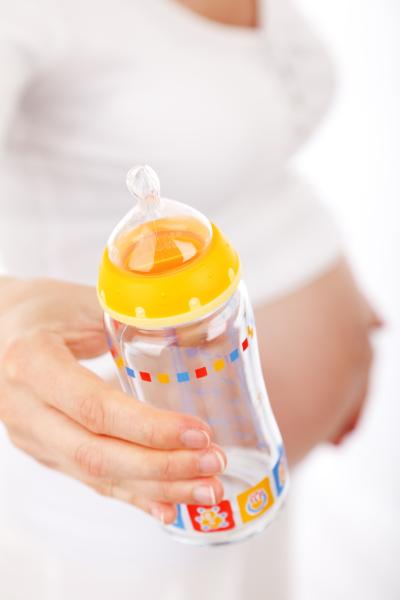Yes, you read that headline correctly. Stigma, judgment and guilt are so rampant when it comes to decisions mothers make regarding infant feeding that the London-based Royal College of Midwives (RCM) was compelled to release a new position statement underscoring that it is a woman’s right to bottle feed her baby. This is what happens when misguided “at all costs” breastfeeding strategies run amok - look no further than the fact the United Kingdom has one of the lowest breastfeeding rates in Europe.
In it, the RCM literally affirms “the decision of whether or not to breastfeed is a woman’s choice and must be respected.” Think about that for a moment. That is how bad things have gotten in terms of shaming and pressuring women in what should otherwise be the most joyous times in their and their family’s lives. Formal and informal policy had strayed so far from what it means to be a responsible health professional to families that this significant overcorrection had become necessary to meet the needs of new parents.
Finally.
As I consistently write, breastfeeding is not the right choice for every woman or family. Some are suffering from profound chronic disease undergoing treatments like chemotherapy that would be dangerous for the breastfeeding infant or are experiencing significant postpartum depression. Others have multiple children, lost a job or spouse, are caring for an ailing parent or are enduring various stressors. The litany of trials facing families runs the gamut. Whereas others simply never wanted to breastfeed or prefer to do so partially or use formula entirely.
Somewhere along the way the concept of a healthy family, including but not limited to mother and baby, fell by the wayside and overzealous lactivists - breastfeeding activists - won the narrative game. Breastfeeding is to be discussed in the framework of a panacea, thereby silencing any mention of formula or short- or long-term problems. It is a shame because there are so many wonderful, well-intended champions of breastfeeding - pediatricians, midwives, nurses and lactation consultants alike - who genuinely care, are compassionate and thoroughly knowledgeable in this space and help many women achieve their breastfeeding goals. They do so generously and without scorn. But, the squeaky wheel often gets the grease and a refrain like “formula is evil” and “breast is best” is a more winning contagion.
When politics infects medicine, and worse the exam room, nobody wins.
Messaging with respect to infant feeding needs to be measured, comprehensive, honest, personally-tailored and support a fully informed position. There is no disputing that breastfeeding is ideal for an infant, but women need to hear that phrase in conjunction with an understanding that the process can be a struggle in the immediate to protracted newborn period. And that such a challenging time is way more the norm than the opposite, especially in a first-time parent or after a C-section, for example. They simultaneously need to hear that formula is an acceptable choice that has also saved countless lives. How to breastfeed and formula feed properly is a vital aspect of such guidance.
Discussion of infant feeding that omits the risks and benefits of breast milk and formula is not an entirely truthful one. Short of that is violating the fundamental tenets of bioethics of which practicing clinicians especially are duty-bound, for instance:
Principle of Autonomy
-
We are responsible for what we do and are truly free to make our own choices. In the healthcare space, physicians are to empower these decisions by patients by providing fully informed consent that is absent of coercion.
Principle of Non-maleficence
-
The concept of “first do no harm” is at play here. That risks and benefits are assessed so as the former does not outweigh the latter to create any unnecessary suffering.
Principle of Beneficence
-
Do as much good as you can which can reflect kind, compassionate care above and beyond the minimum, maintaining knowledge and skills, strive for the best interest of the patient etc.
The fact that “her choice must be respected” has to enter the language of a public policy forum should spur other global and national leadership to action. The reality that this stance was taken due to the results of confirmatory evidence collected by researchers about the unacceptable levels of stress women are facing astounds me. This awareness is long-standing and steps to improve it are way overdue. As a pediatrician who personally witnessed such universal unnecessary distress throughout my clinical experience, this is not a revelation nor would it be to my colleagues. It is time society, governmental agencies and public health advocates get up to speed. Respect should be a given, the fact it isn't should be a dramatic wake-up call.
To put further into context the trends in infant feeding policy, review these articles (click blue links):



